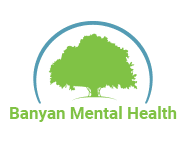South Florida OCD Treatment Centers
About OCD Treatment
Many television shows and movies portray characters with OCD whose silly behaviors lead to big laughs from the audience. Although this disorder may be comical from the outside, for those suffering with this disorder, OCD is no laughing matter.
What Is Obsessive Compulsive Disorder?
Obsessive compulsive disorder or OCD is a mental health disorder characterized by obsessive, exaggerated, and intrusive thoughts and fears that lead people to complete compulsive and repetitive behaviors with the belief that these actions will help reduce or stop their distress.

This type of thinking and behavior creates a vicious cycle, and if the compulsive behaviors are not completed, the person is likely to feel extreme distress. While many people may experience some irrational fears and complete some compulsive behaviors, the behaviors in OCD are usually so unwanted, extreme, and time-consuming that they severely impact the person’s life. Although OCD can manifest itself in different ways, symptoms will usually first appear in adolescence or early adulthood and may get worse or vary throughout a person’s lifetime. OCD cannot be cured completely, but treatment for OCD patients at a mood treatment center can drastically reduce symptoms.
Signs Someone Needs OCD Treatment
OCD will be different for everyone, but there are some traits and behaviors that are common amongst those who struggle with this disorder.
Signs and symptoms of OCD to look for include:
- Organizing and arranging items so everything is in its place
- Cleaning & extreme sanitation practices to combat a fear of germs
- Constant checking to reduce the chances of harming themselves or others
- Repeating behaviors, words, or activities multiple times in a row to ease distress
- Mentally review events to avoid harm
- Affinity for “good,” “right,” or “safe” words or numbers
Obsessive Compulsive Disorder Treatment in South Florida
As an OCD and anxiety treatment center, we offer OCD treatment designed to mitigate and drastically reduce these symptoms so that patients can lead a more normal life. Treatment for obsessive compulsive disorder usually includes both medication as well as mental health therapies to see real improvement. OCD therapy specifically may include teaching patients how to break down destructive thought patterns as well as exposure therapy. Our experienced staff will determine the best course of action for the individual and modify their treatment program frequently to meet their changing needs. With a small staff to patient ratio, our team will get to know each patient on an individual level so that the patient has the greatest chance of success in their recovery.
OCD may also be one of many mental health or behavioral health problems that an individual is facing. To help patients improve their overall quality of life, our staff will complete a full assessment before treatment begins so that the patient’s treatment plan addresses all of their problems at play. Because mental health disorders can often lead to substance abuse problems, we are also a dual diagnosis treatment center.
Whether you are looking for OCD treatment for yourself or help with depression for a loved one, at Banyan Mental Health we have the tools and resources necessary to help our patients regain control of their lives. If you or a loved one needs help, contact us today at 888-280-4763.




